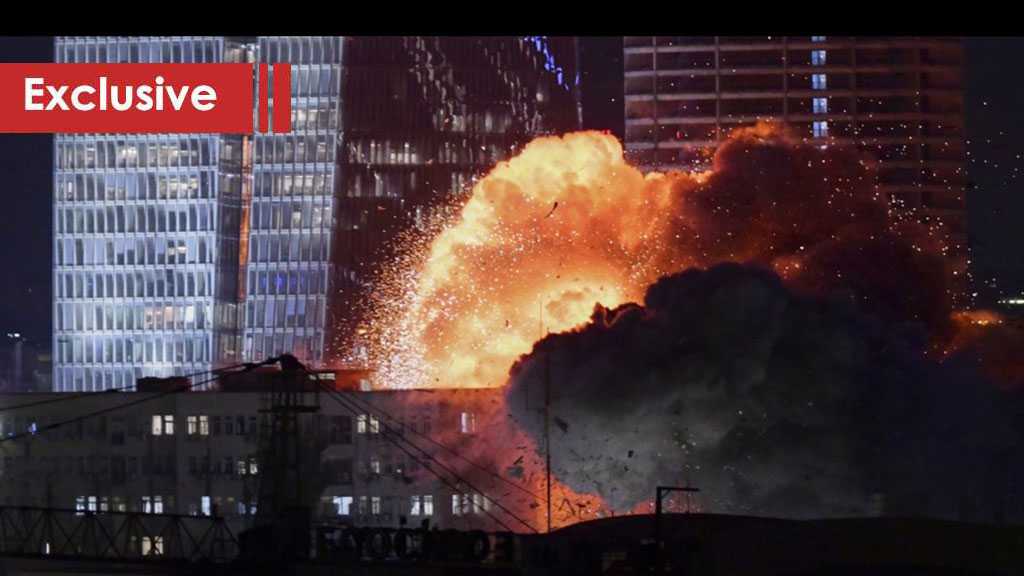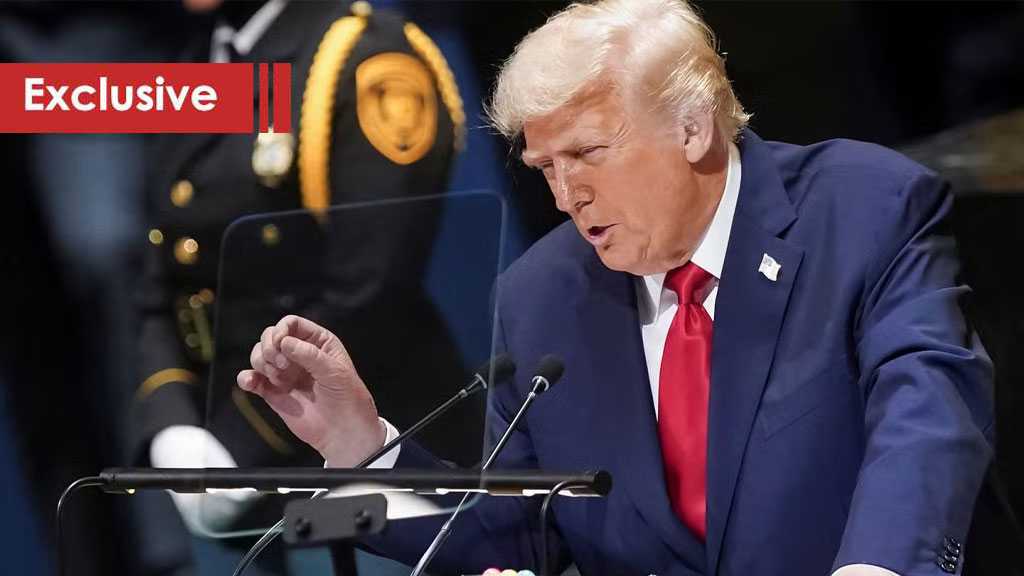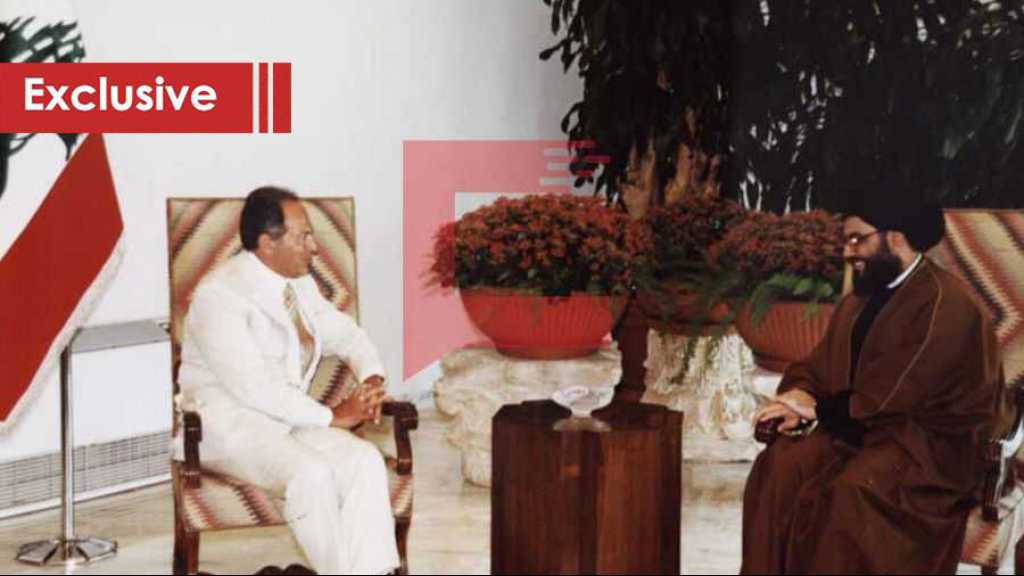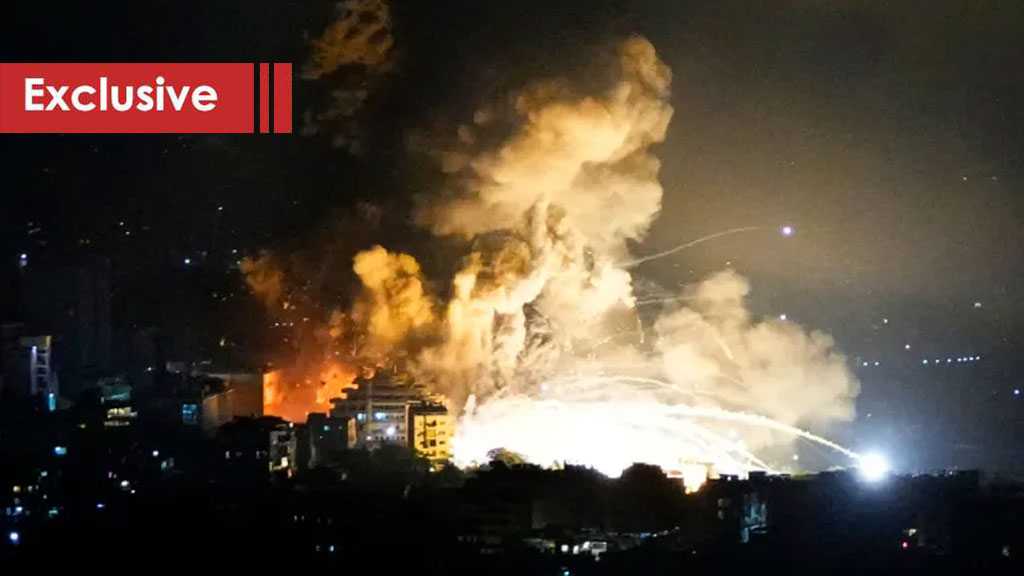“Israel” Strikes Iran Again—And Washington Approves in Silence

By Mohamad Hammoud
The June 13 Strike: A Coordinated Ambush
Lebanon – It has become routine for the Zionist regime to violate international law, target civilians, and disregard state sovereignty—while the West watches in silence.
On June 13, 2025, “Israel” launched one of its most sweeping military operations in recent memory. Dubbed Operation Rising Lion, the assault targeted nearly 100 Iranian sites, including the Natanz enrichment facility, missile factories, and residences of top Iranian officials. Over 200 aircraft dropped more than 330 bombs, killing dozens of military personnel and civilians—including Major General Hossein Salami and General Mohammad Bagheri. While the scale of the attack shocked observers, what truly demands attention is the context behind it.
According to a Wall Street Journal report, the Trump administration was not merely a distant observer. US officials had intentionally slowed nuclear negotiations with Iran, giving "Israel" time to plan and launch its strike. Public warnings from Washington urging restraint were, in retrospect, diplomatic theater. Behind closed doors, coordination was underway. Far from being a unilateral move by Tel Aviv, the operation bore Washington's fingerprints.
This wasn't a case of an ally acting independently. It was a well-timed ambush, designed and executed with full knowledge of the American administration if not outright blessing.
The Power Behind the Presidency: AIPAC and the Evangelical Bloc
If any administration might have restrained "Israel," it was Trump's, given his rhetoric against endless wars. Yet again, he acquiesced. Why?
The answer lies in the political machinery that shapes US foreign policy. The American Israel Public Affairs Committee [AIPAC] remains one of Washington's most formidable lobbying groups. Its reach spans both parties, exerting influence through vast donor networks, favorable media narratives, and deep congressional ties. For any president, opposing AIPAC risks political suicide.
Layered on top of that is the Evangelical Christian base—a powerful voting bloc that views unwavering support for "Israel" as a religious duty. Evangelicals form a crucial part of Trump's political base, especially in swing states.
In this environment, Trump's decision becomes more transparent. Though he publicly supported the nuclear talks, he quietly allowed "Israel" to strike—cornered by domestic political pressure and perhaps also in alignment with his own instincts.
Public Discord, Private Alignment
Trump and Netanyahu have publicly clashed—over ceasefires, annexation, and optics—but their strategic alignment has never wavered. Their differences were more performance than substance.
Both sought to dismantle Iran's military capacity and halt any easing of sanctions. Trump's 60-day ultimatum to Iran, which expired just before the strike, now appears to have served as cover. It gave "Israel" the green light while providing Washington with plausible deniability.
Their public divergence masked a deeper convergence: a shared belief that diplomacy with Iran must be sabotaged, and that force, not negotiation, was the preferable path.
No Cost for Aggression
The attack killed civilians and destroyed homes in Tehran and Isfahan. Yet, no condemnation came from the US, no emergency UN session, and no sanctions. Once again, "Israel" acts with impunity—shielded by American power.
What other country could kill scientists and bomb residential areas without consequences? This isn't defense—it's impunity wrapped in silence. Still, no condemnation came from the West. No UN resolution. No sanctions.
Strategic Miscalculation
Rather than weaken Iran, the strike has galvanized it. Iranian unity has hardened, and the nuclear program is expected to accelerate. Retaliation is already underway. Hundreds of Iranian missiles have struck Tel Aviv and other targets, inflicting casualties and damaging infrastructure.
Experts now warn that the region stands on the edge of a full-scale war. Former US diplomats cautioned that escalation could engulf shipping lanes in the Strait of Hormuz, destabilize Iraq, Syria, and Lebanon, and force a direct US military response. The danger is no longer theoretical.
Meanwhile, America has once again squandered its diplomatic credibility to shield an ally that routinely ignores its advice. This dynamic endangers not only regional stability but also American lives.
A Turning Point—Or Just Another Chapter?
The June 13 strike exposes the dangerous illusion at the heart of US foreign policy: that Washington controls "Israel." In truth, it is the other way around. The real policymakers are not always in the White House or State Department but in lobbying offices and campaign war rooms.
Until the US finds the courage to put its own national interest ahead of its political dependencies, "Israel" will continue to act with impunity, and the region will continue to burn. What happened on June 13 is not just an act of war but a symptom of a much deeper problem.
The price of silence, subservience, and complicity is growing. And the next explosion may not be limited to the Middle East.




